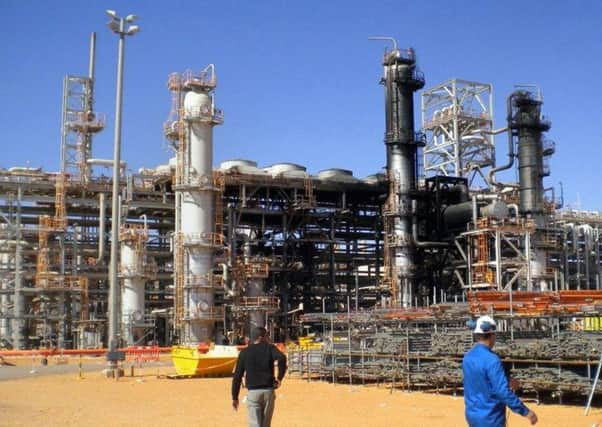Algeria siege deaths: Intelligence delay blamed


Flaws in the oil plant’s security and risk assessment were also highlighted during the conclusion yesterday of the inquest held at the Old Bailey.
But after recording verdicts of unlawful killing of six Britons and one UK-based Colombian, assistant coroner for West Sussex Nicholas Hilliard QC made no specific recommendations to prevent such a tragedy happening again.
Advertisement
Hide AdAdvertisement
Hide AdHe made the decision after hearing how security procedures had since been improved at the plant and steps were being taken by the government to prevent a repeat of the delay in processing intelligence.
The victims were all killed by al-Qaeda-linked Islamists during a four-day stand-off in January 2013 at the In Amenas complex.
They were Carson Bilsland, from Perthshire; Kenneth Whiteside, from Glenrothes; Sebastian John, from the East Midlands; Stephen Green, from Hampshire; Paul Morgan and Garry Barlow, both from Liverpool, and Carlos Estrada, originally from Colombia but who lived in London.
The inquest heard how Mr Morgan was killed when heavily armed terrorists attacked his bus convoy as it headed to the airport before bursting into the complex.
A further four Britons and Mr Estrada died when they were used as “human shields”, two of them probably hit by bullets from Algerian forces. Mr Barlow, who turned 50 on the first day of the siege, died in an explosion at the base as the hostage situation drew to a close.
The coroner concluded that, although the general risks of terror attacks in Algeria were well known, there was no evidence of a specific threat at the time.
And, while the gates were routinely left open at peak times, even if they had been closed when the terrorists struck, it would only have delayed their progress.
The coroner also had access to British government intelligence which revealed that, in early December 2012, it had received and read information alleging that unidentified terrorists in southern Algeria were seeking information about British workers in the country with a view to kidnapping them.
Advertisement
Hide AdAdvertisement
Hide AdHe said: “It was later established that the information was several months old when HMG [Her Majesty’s Government] received it. There was an unnecessary and unintentional delay in processing the information until after the attack had started.”
Although the government later assessed the information as of “questionable” reliability and lacking in detail, the coroner said: “But for the delay, there was a possibility that some of the information would have been passed to BP before the attack.”
After weighing up the potential damage to national security, he decided not to seek further disclosure.
But he said: “Notwithstanding that decision, it is clearly of vital importance that material of this kind is assessed in a timely fashion.
“I understand that steps have been taken to ensure that the delay which happened here is not repeated.”
FOLLOW US
SCOTSMAN TABLET AND MOBILE APPS